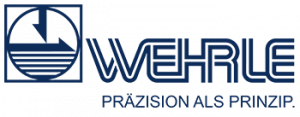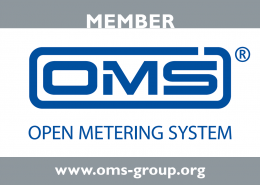The Hidden World of Measurement
The Hidden World of Measurement
The hidden world of measurement is a fascinating realm that underlies many aspects of our daily lives, from the food we eat to the cars we drive. Measurement equipment plays a crucial role in ensuring the quality and safety of products, and its impact is felt across various industries, including precision engineering, scientific research, and quality control. But have you ever stopped to think about the complexities and challenges involved in measurement? As "Measurement is the foundation of science, and science is the foundation of measurement," says Dr. Richard Feynman, a renowned physicist. In this article, we'll delve into the intersection of technology, human error, and precision, and explore the hidden world of measurement.
The History of Measurement
The history of measurement dates back to ancient civilizations, where people used various methods to quantify the world around them. From the Egyptian cubit to the British imperial system, measurement has evolved over time, with each era contributing its own unique methods and tools. The development of measurement equipment has been shaped by the needs of various industries, from trade and commerce to science and technology. As we'll see, the pursuit of precision has driven innovation in measurement, leading to the sophisticated equipment we use today. But what drives this pursuit of precision, and how does it impact our daily lives?

The Psychology of Human Error
Human error is a significant factor in measurement, and it's essential to understand the psychological aspects of error to mitigate its impact. As "The human brain is a wonderful instrument, but it's not perfect, and it's prone to errors," says Dr. Daniel Kahneman, a Nobel laureate in economics. Cognitive biases, perception, and attention can all influence measurement outcomes, leading to errors that can have significant consequences. For instance, in precision engineering, a small error in measurement can result in a faulty product, while in scientific research, an incorrect measurement can lead to flawed conclusions. By understanding the psychology of human error, we can develop strategies to minimize its impact and improve the accuracy of our measurements.
The Role of Technology in Measurement
Technology has revolutionized the field of measurement, enabling us to achieve unprecedented levels of precision and accuracy. From digital calipers to spectroscopes, measurement equipment has become increasingly sophisticated, allowing us to measure a wide range of parameters with ease. However, technology is not a panacea, and it's essential to understand its limitations and potential pitfalls. As "Technology is a tool, not a substitute for human judgment," says Dr. Andrew Sutherland, a leading expert in measurement science. By combining technology with human expertise, we can achieve remarkable feats of precision and accuracy, but we must also be aware of the potential risks and challenges associated with relying on technology.
Case Studies in Measurement
Let's take a look at some real-world examples of how measurement equipment has been used to solve complex problems or achieve remarkable feats. For instance, in the field of precision engineering, measurement equipment is used to manufacture components with extremely tight tolerances. Some examples of measurement equipment used in this field include:
- Laser interferometers
- Coordinate measuring machines
- Scanning electron microscopes These tools enable engineers to measure and inspect components with unprecedented precision, ensuring that they meet the required specifications. Similarly, in scientific research, measurement equipment is used to collect and analyze data, often in extreme environments, such as high-temperature or high-pressure conditions. By using specialized measurement equipment, researchers can gather accurate and reliable data, which is essential for advancing our understanding of the world.
The Future of Measurement
As we look to the future, it's clear that measurement will continue to play a vital role in shaping our world. Emerging technologies, such as the Internet of Things (IoT) and artificial intelligence (AI), will likely have a significant impact on the field of measurement, enabling us to collect and analyze data in new and innovative ways. As "The future of measurement is all about connectivity and interoperability," says Dr. Stefan Svensson, a leading expert in measurement technology. By leveraging these technologies, we can create a more precise and accurate world, where measurement equipment is integrated seamlessly into our daily lives. But what does this future hold, and how will it shape the world of measurement?
Gaming the Odds of Precision
The pursuit of precision is a mindset that can be applied to various aspects of life, from measurement equipment to entertainment. As we've seen, the hidden world of measurement is all about achieving accuracy and reliability. But what happens when we take this mindset to a completely different domain, like games of chance? Interestingly, the same principles of precision and probability can be applied to understand the odds of winning in certain games. For instance, playing Pirate Pays Megaways slot online (Big Time Gaming) can be a thrilling experience, as it requires a combination of luck and strategy to hit the jackpot. By analyzing the probability of certain outcomes, players can make informed decisions and increase their chances of winning, much like how measurement equipment helps us make precise calculations in various industries. This intersection of precision and probability is a fascinating area of study, and it's surprising how many parallels can be drawn between these two seemingly unrelated fields.
The Pursuit of Precision
The pursuit of precision is a never-ending journey, driven by the need for accuracy and reliability in various industries. As measurement equipment continues to evolve, we can expect to see new and innovative technologies emerge, enabling us to achieve even higher levels of precision and accuracy. But what drives this pursuit of precision, and how does it impact our daily lives? Is it simply a matter of achieving a certain level of accuracy, or is there something more profound at play? As we'll see, the pursuit of precision is closely tied to the human desire for knowledge and understanding, and it's this desire that drives innovation in measurement. So, what's the next frontier in measurement, and how will it shape our world? Only time will tell, but one thing is certain – the hidden world of measurement will continue to fascinate and inspire us, as we strive to create a more precise and accurate world.


